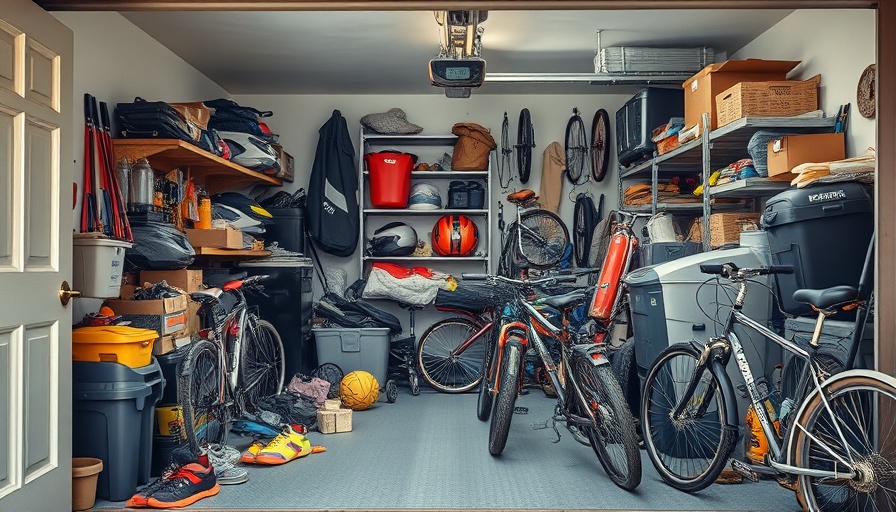
Understanding Garage Storage: What You Need to Know
Garages often become a repository for items that don't fit inside the home. While this might seem practical, not everything is suitable for garage storage. Temperature fluctuations, humidity, and pest invasions pose serious risks to various items when kept in the garage. Experts warn against cluttering your garage with these specific items to prevent property damage, create an inviting living space, and enhance safety in the home.
Why Storing Paint in the Garage is a Recipe for Disaster
Among the most common items people store in their garages is paint. However, extreme temperature conditions greatly affect paint quality. According to Dan DiClerico from the Good Housekeeping Institute, "Temperature swings can degrade the paint, altering its consistency and usability." Instead, paint should be kept in a temperature-controlled environment away from direct sunlight.
Firewood: A Hidden Hazard in Your Garage
Though firewood is a staple for homes with fireplaces, storing it in the garage is fraught with potential issues. Not only can it attract pests, but the lack of ventilation can lead to mold growth. Storing firewood at least 20 feet away from your home is recommended, so consider creating a designated outdoor storage area.
The Dangers of Storing Gasoline and Propane
Gasoline and propane can easily ignite, making garage storage a dangerous proposition. Both should be stored in a well-ventilated outdoor shed, far from ignition sources like hot water heaters or car engines. The risks associated with fuel storage in an enclosed garage can lead to catastrophic accidents.
Electronics and The Impact of Temperature Variations
Garages are often too hot in the summer and chilly in the winter, conditions that can wreak havoc on electronics. As detailed by Mercury Insurance's guidelines, electronics such as televisions and computers should never be kept in garages to avoid moisture damage and potential malfunction. Instead, opt for a climate-controlled indoor space for these sensitive devices.
Common Misconceptions: Can You Store Food in Your Garage?
Many believe that canned food or pet food can safely be stored in the garage. This misconception can lead to pest problems and spoilage. Rodents can easily access food items, creating hazards in your home. Always store food inside the house, preferably in airtight containers, to maintain its quality and safety.
Understanding Pest Attraction: The Risks of Storing Books and Paper
Pests are naturally drawn to paper products, making books a risky choice for garage storage. Moisture can damage paper, causing it to curl or mold. Instead of risking treasured books and documents, store these items indoors, protected from potential damage.
Protecting Your Belongings: The Importance of Proper Storage Decisions
Through understanding which items are safe for garage storage and taking preventative measures, homeowners can safeguard their belongings while maintaining a tidy living environment. It's crucial to carefully consider your storage options to avoid the complications that arise from poorly chosen garage items.
Taking Action: Optimize Your Garage Space Safely
When it comes to garage storage, knowledge is power. Awareness of the best and worst items for storage can help prevent clutter and maintain safety in your home. By choosing appropriate items for the garage, you can create a functional space that protects your belongings and enhances your home's overall organization. Ultimately, if you want to take your garage organization to the next level, start by evaluating your stored items today.
#GarageStorage, #HomeOrganization, #PaintStorage, #FirewoodHazards, #GasolineSafety, #PropaneRisks, #ElectronicsCare, #FoodStorage, #PestControl, #BookProtection
 Add Row
Add Row  Add
Add 




 Add Row
Add Row  Add
Add 


Write A Comment